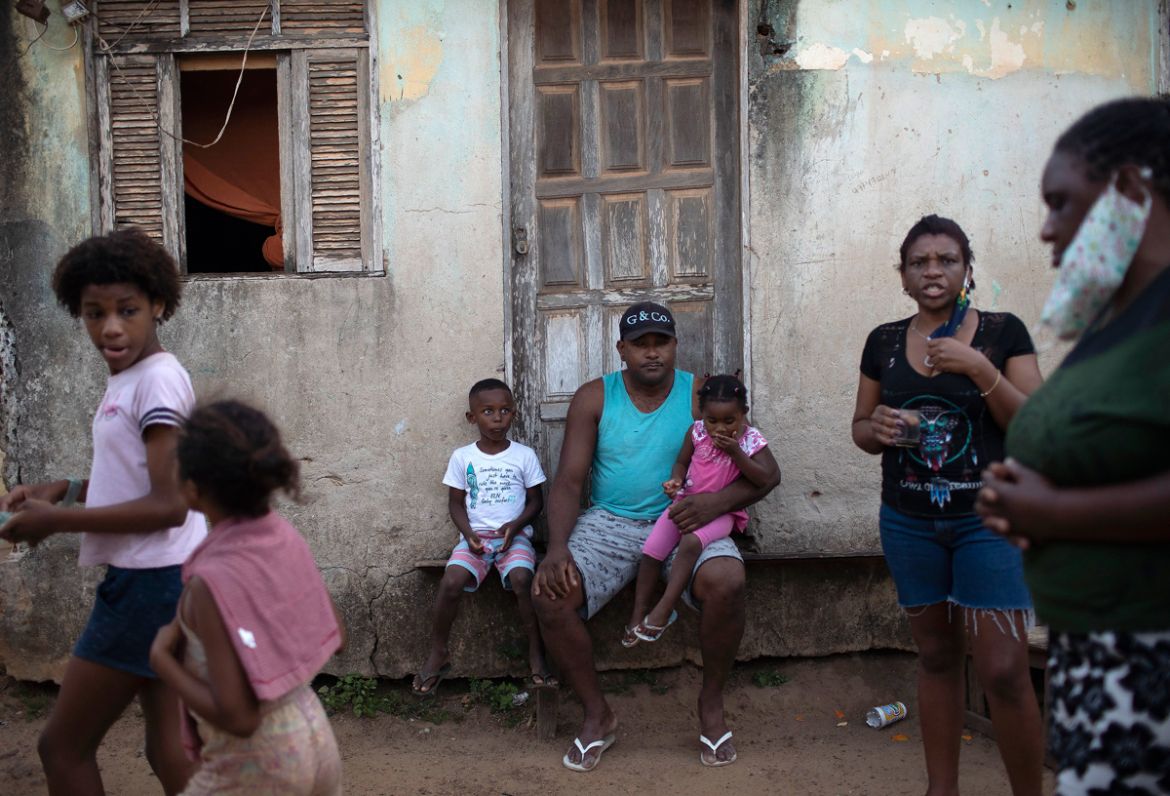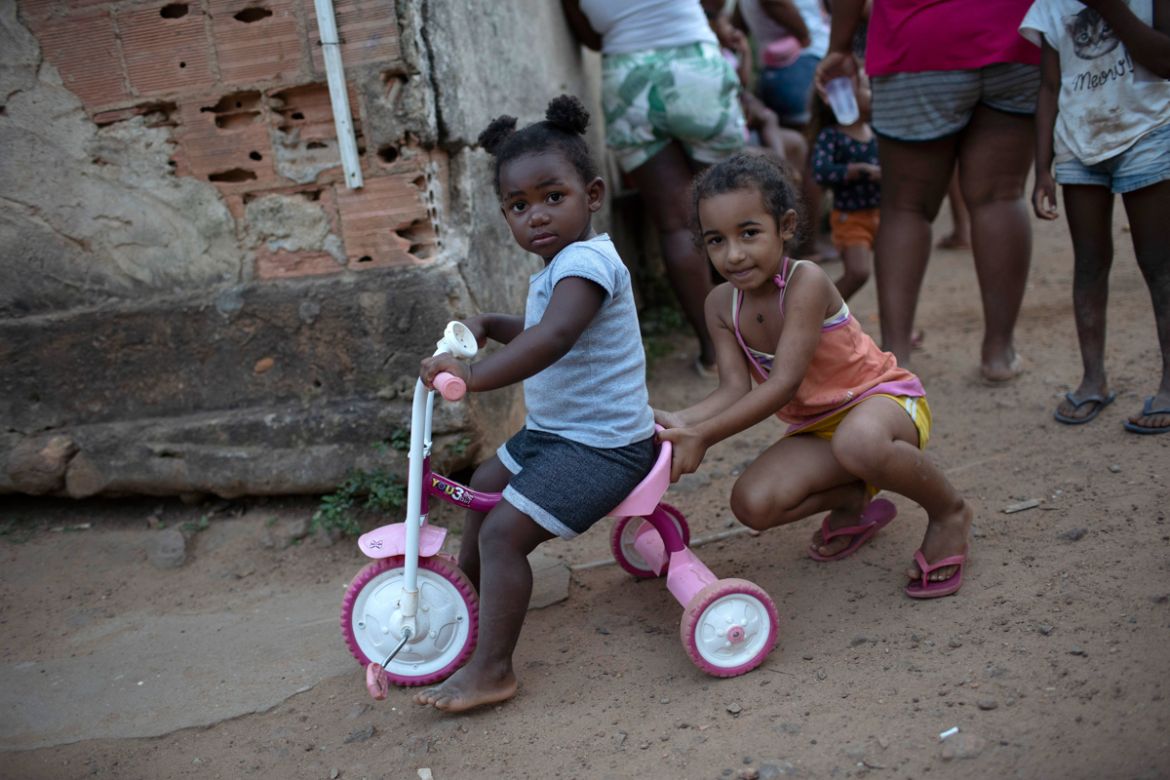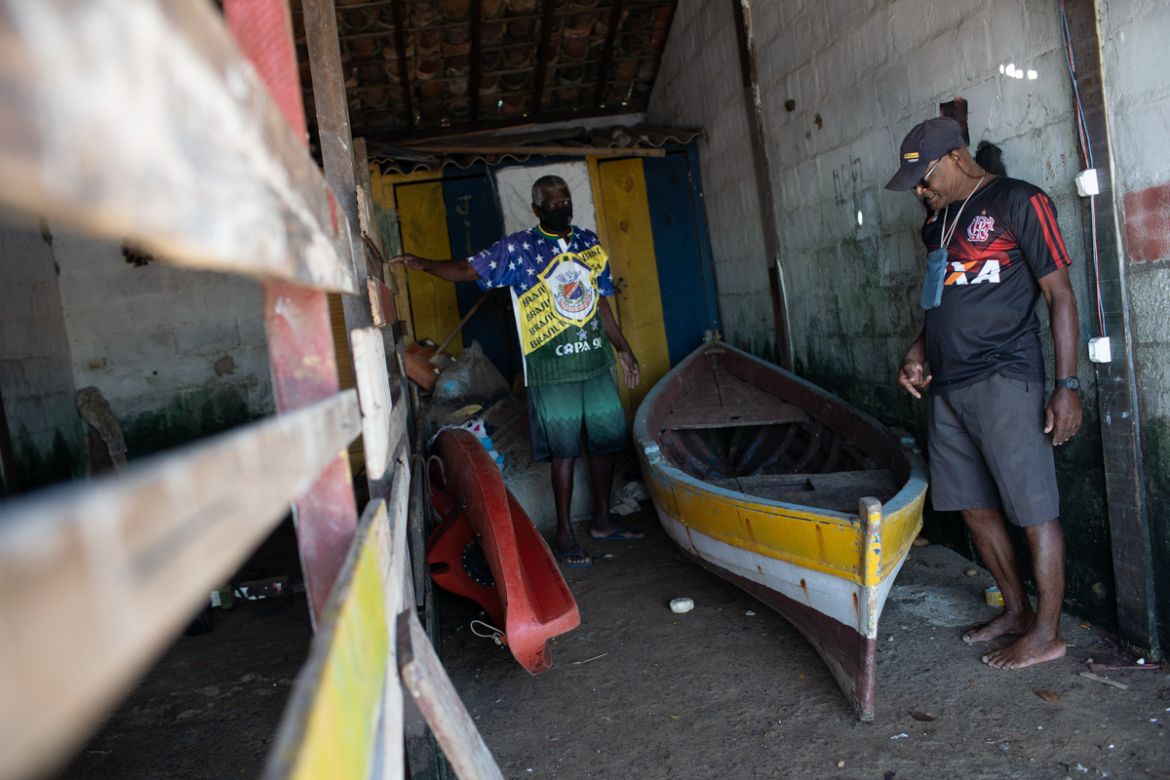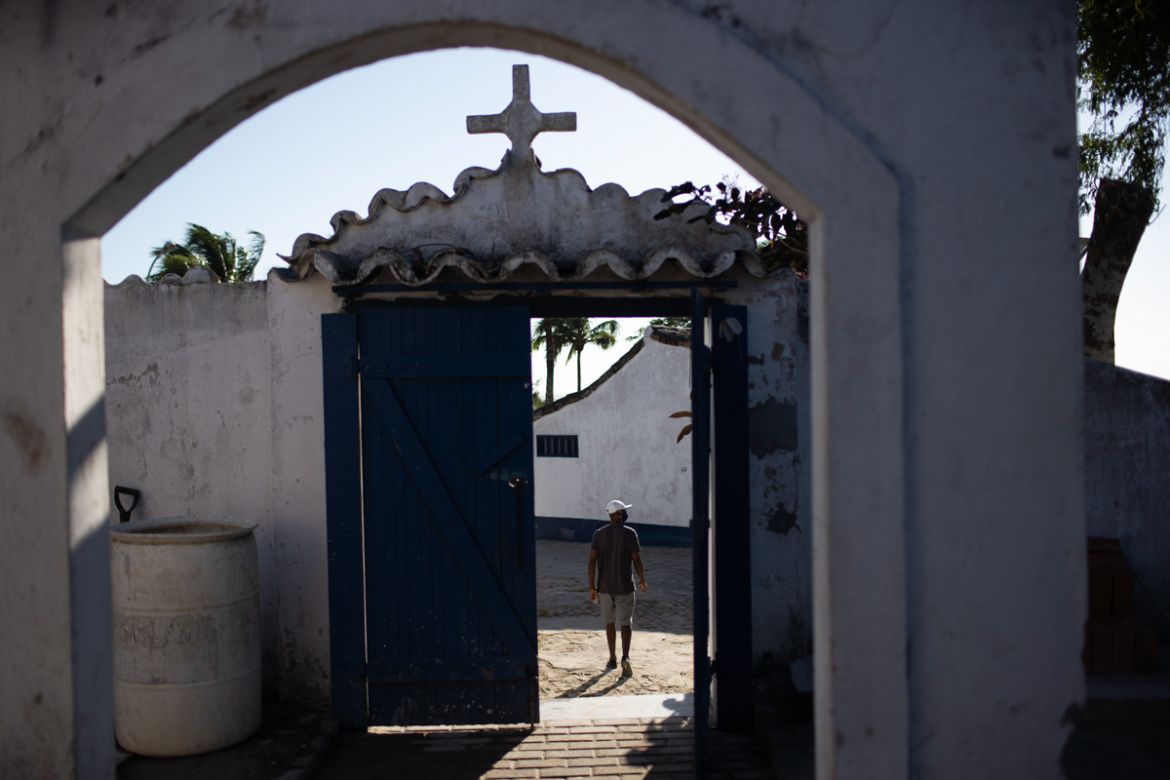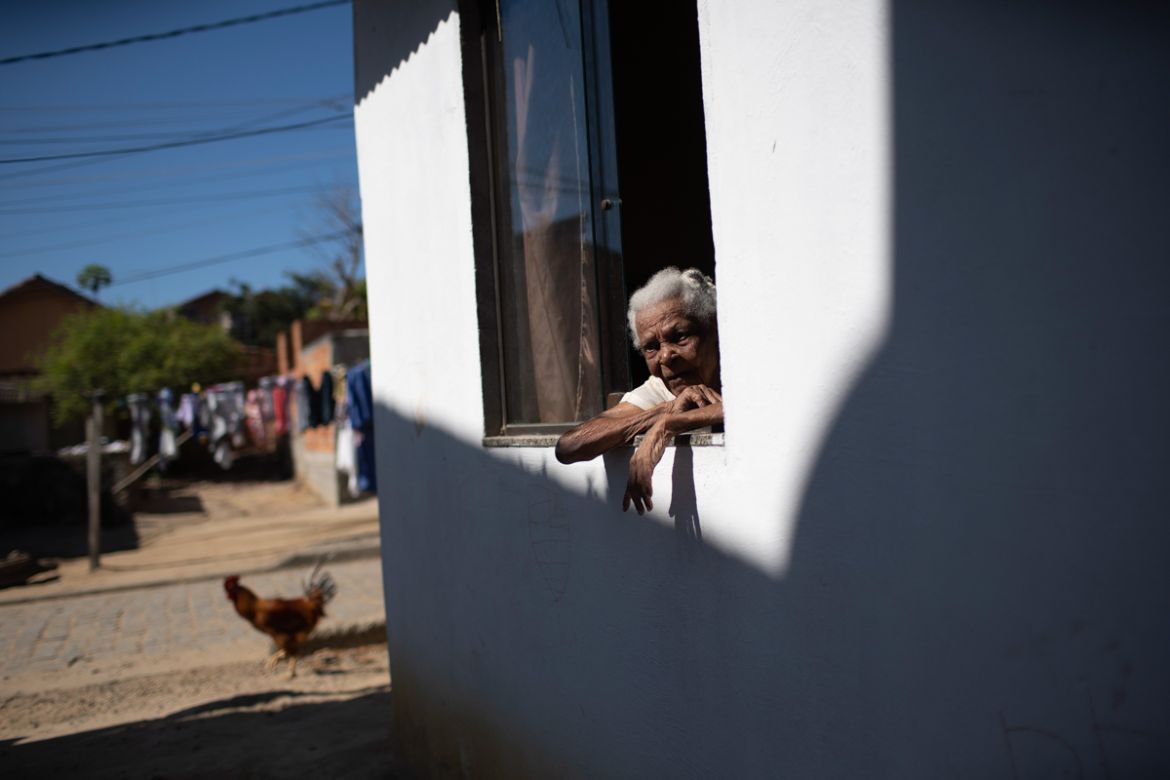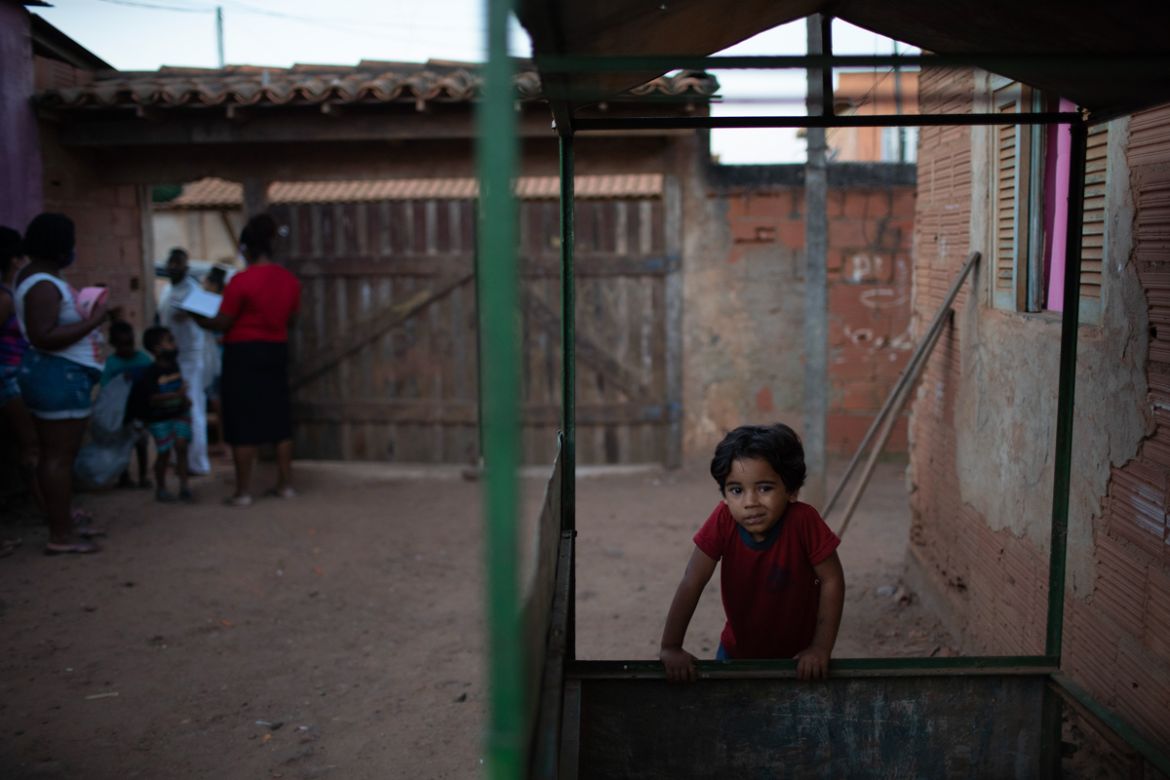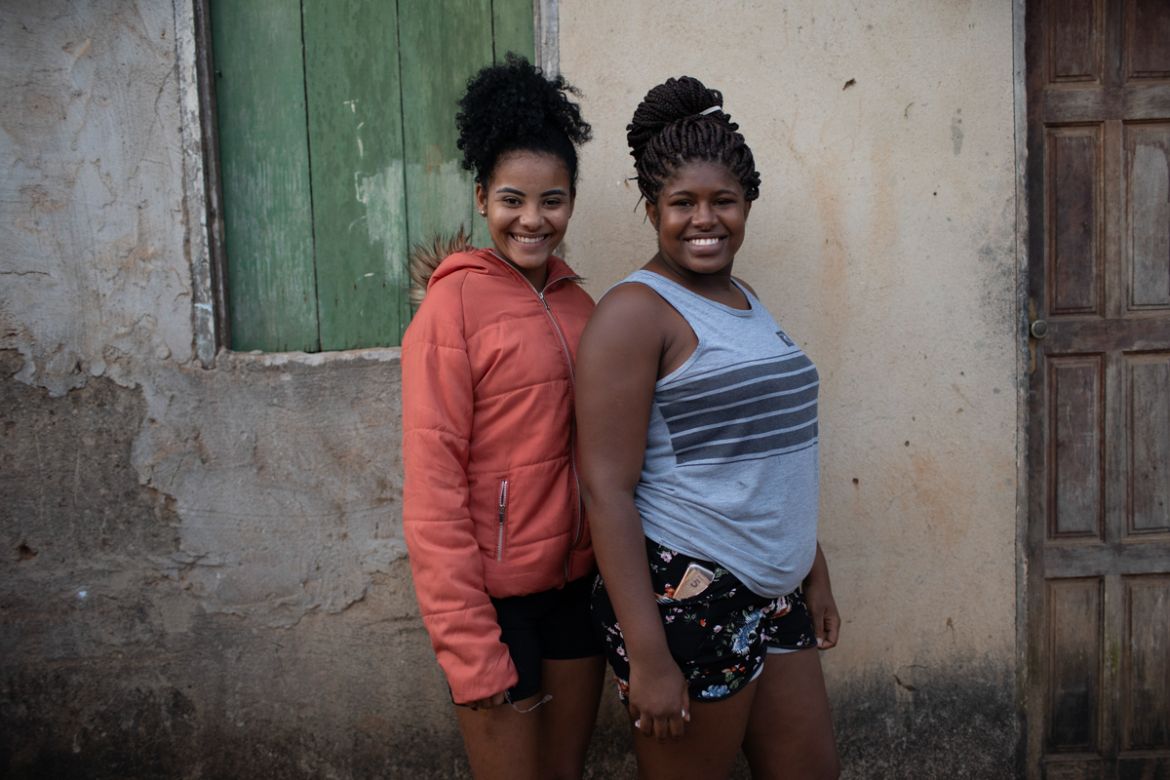In Pictures
In Pictures: COVID-19 hits Brazil’s quilombos hard
Founded by runaway slaves, these poor communities are reeling under the coronavirus pandemic.
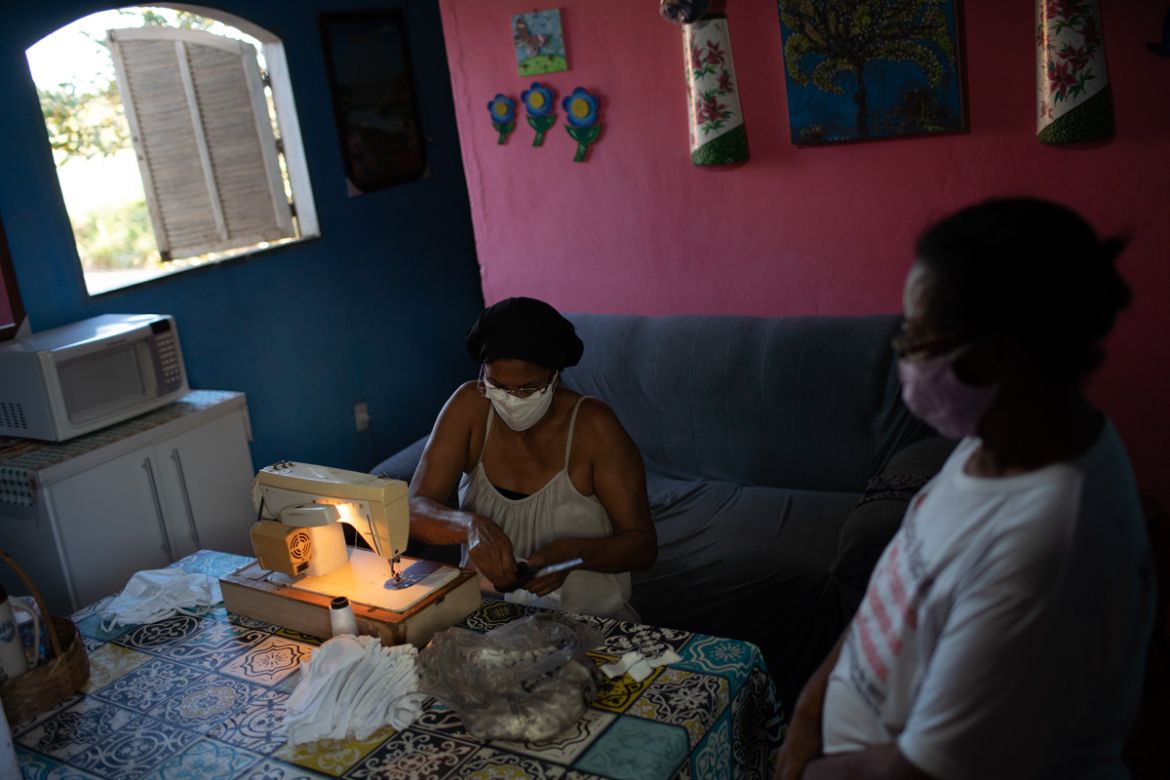
In a small room filled with donated bananas, lettuce, toilet paper and more, Rejane Oliveira quickly prepares boxes for more than 100 families who are trying to weather the coronavirus outbreak.
Her community, Maria Joaquina in coastal Rio de Janeiro state, is one of Brazil’s quilombos, settlements founded by runaway slaves in centuries past and still largely inhabited by their descendants. Often disconnected from urban life, even within city limits, quilombos have relatively high poverty rates.
Quilombolas tend to avoid going into the city, but in spite of their relative isolation, they have begun to succumb to the coronavirus all the same.
Brazil abolished slavery in 1888, after which the Quilombola campaigned for more than a century to gain recognition of their right to the lands they occupied. Lands where their descendants live and try to keep their ancestors’ traditions alive.
Among the traditions that Oliveira credits with keeping the community healthy are the variety of traditional teas made from the leaves of fruit trees, garlic or a herb called boldo.
“Everyone uses the herbs, even the kids,” she said. “If we hadn’t preserved the little bit of herbs we had, we would have died.”
In July, Maria Joaquina’s residents traditionally commemorate the formal recognition of their quilombo, but the pandemic has forced people to quarantine in their homes. A dance show and football tournament planned for this month were also cancelled.
To facilitate government aid, Brazil’s national statistics agency in April released its estimate of how many quilombos exist nationwide – almost 6,000 – as well as their locations.
The number of people living in them remains uncertain. The agency planned to count them for the first time in the 2020 census, but the pandemic forced its postponement until next year.
While the population of the quilombos remains untallied, the National Coordination of Articulation of Black Rural Quilombola Communities (CONAQ) is tracking the pandemic’s impact on them in conjunction with the Socio-environmental Institute, an environmental and Indigenous advocacy group. Their data shows 3,465 infections and 136 deaths.
More than 30 people in Maria Joaquina have been infected, Oliveira among them.
“We’ve been abandoned, forgotten, with no health assistance,” said Oliveira, 45, who is Rio’s representative to CONAQ.
At the nearby Rasa quilombo, community members have received not only private donations but also help from the government.
“A health team came, tested everyone; we had assistance,” said Reginalda Oliveira, who is Rejane’s cousin and lives in Rasa.
Reginalda, 41, said the health response was fine, but what truly affected her about the pandemic was the death of her mother of COVID-19.
“A part of me went with her,” she said.
